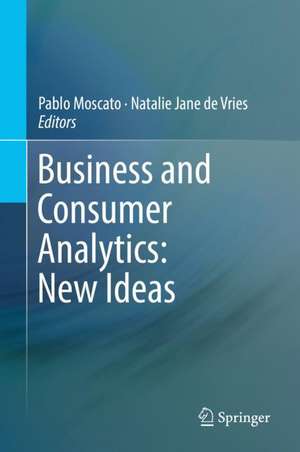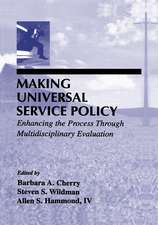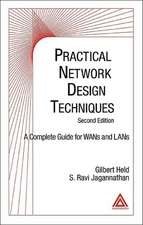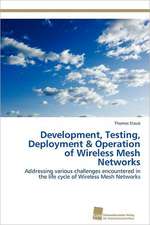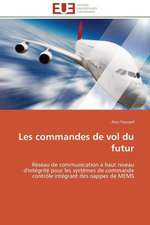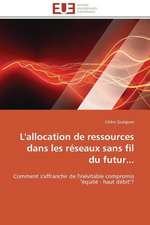Business and Consumer Analytics: New Ideas
Editat de Pablo Moscato, Natalie Jane de Vriesen Limba Engleză Hardback – 13 iun 2019
This two-volume handbook presents a collection of novel methodologies with applications and illustrative examples in the areas of data-driven computational social sciences. Throughout this handbook, the focus is kept specifically on business and consumer-oriented applications with interesting sections ranging from clustering and network analysis, meta-analytics, memetic algorithms, machine learning, recommender systems methodologies, parallel pattern mining and data mining to specific applications in market segmentation, travel, fashion or entertainment analytics. A must-read for anyone in data-analytics, marketing, behavior modelling and computational social science, interested in the latest applications of new computer science methodologies.
The chapters are contributed by leading experts in the associated fields.The chapters cover technical aspects at different levels, some of which are introductory and could be used for teaching. Some chapters aim at building a commonunderstanding of the methodologies and recent application areas including the introduction of new theoretical results in the complexity of core problems. Business and marketing professionals may use the book to familiarize themselves with some important foundations of data science. The work is a good starting point to establish an open dialogue of communication between professionals and researchers from different fields.
Together, the two volumes present a number of different new directions in Business and Customer Analytics with an emphasis in personalization of services, the development of new mathematical models and new algorithms, heuristics and metaheuristics applied to the challenging problems in the field. Sections of the book have introductory material to more specific and advanced themes in some of the chapters, allowing the volumes to be used as an advanced textbook. Clustering, Proximity Graphs, Pattern Mining, Frequent Itemset Mining, Feature Engineering, Network and Community Detection, Network-based Recommending Systems and Visualization, are some of the topics in the first volume. Techniques on Memetic Algorithms and their applications to Business Analytics and Data Science are surveyed in the second volume; applications in Team Orienteering, Competitive Facility-location, and Visualization of Products and Consumers are also discussed. The second volume also includes an introduction to Meta-Analytics, and to the application areas of Fashion and Travel Analytics. Overall, the two-volume set helps to describe some fundamentals, acts as a bridge between different disciplines, and presents important results in a rapidly moving field combining powerful optimization techniques allied to new mathematical models critical for personalization of services.
Academics and professionals working in the area of business anyalytics, data science, operations research and marketing will find this handbook valuable as a reference. Students studying these fields will find this handbook useful and helpful as a secondary textbook.
The chapters are contributed by leading experts in the associated fields.The chapters cover technical aspects at different levels, some of which are introductory and could be used for teaching. Some chapters aim at building a commonunderstanding of the methodologies and recent application areas including the introduction of new theoretical results in the complexity of core problems. Business and marketing professionals may use the book to familiarize themselves with some important foundations of data science. The work is a good starting point to establish an open dialogue of communication between professionals and researchers from different fields.
Together, the two volumes present a number of different new directions in Business and Customer Analytics with an emphasis in personalization of services, the development of new mathematical models and new algorithms, heuristics and metaheuristics applied to the challenging problems in the field. Sections of the book have introductory material to more specific and advanced themes in some of the chapters, allowing the volumes to be used as an advanced textbook. Clustering, Proximity Graphs, Pattern Mining, Frequent Itemset Mining, Feature Engineering, Network and Community Detection, Network-based Recommending Systems and Visualization, are some of the topics in the first volume. Techniques on Memetic Algorithms and their applications to Business Analytics and Data Science are surveyed in the second volume; applications in Team Orienteering, Competitive Facility-location, and Visualization of Products and Consumers are also discussed. The second volume also includes an introduction to Meta-Analytics, and to the application areas of Fashion and Travel Analytics. Overall, the two-volume set helps to describe some fundamentals, acts as a bridge between different disciplines, and presents important results in a rapidly moving field combining powerful optimization techniques allied to new mathematical models critical for personalization of services.
Academics and professionals working in the area of business anyalytics, data science, operations research and marketing will find this handbook valuable as a reference. Students studying these fields will find this handbook useful and helpful as a secondary textbook.
Preț: 2225.09 lei
Preț vechi: 2781.36 lei
-20% Nou
Puncte Express: 3338
Preț estimativ în valută:
425.91€ • 447.45$ • 357.93£
425.91€ • 447.45$ • 357.93£
Carte tipărită la comandă
Livrare economică 11-25 martie
Preluare comenzi: 021 569.72.76
Specificații
ISBN-13: 9783030062217
ISBN-10: 303006221X
Pagini: 1070
Ilustrații: XVIII, 1005 p. 210 illus., 167 illus. in color.
Dimensiuni: 155 x 235 mm
Greutate: 1.59 kg
Ediția:1st ed. 2019
Editura: Springer International Publishing
Colecția Springer
Locul publicării:Cham, Switzerland
ISBN-10: 303006221X
Pagini: 1070
Ilustrații: XVIII, 1005 p. 210 illus., 167 illus. in color.
Dimensiuni: 155 x 235 mm
Greutate: 1.59 kg
Ediția:1st ed. 2019
Editura: Springer International Publishing
Colecția Springer
Locul publicării:Cham, Switzerland
Cuprins
1 Marketing meets Data Science: Bridging the gap.- 2 Consumer behaviour and marketing fundamentals for business data analytics.- 3 Introducing Clustering with a focus in Marketing and Consumer Analytics.- 4 An Introduction to Proximity Graphs.- 5 Clustering consumers and cluster-specific behavioural models.- 6 Frequent Itemset Mining.- 7 Business Network Analytics: From Graphs to Supernetworks.- 8 Centrality in networks: Finding the most important nodes.- 9 Overlapping communities in co-purchasing and social interaction graphs: a memetic approach.- 10 Taming a Graph Hairball: Local Exploration in a Global Context.- 11 Network-based models for social recommender systems.- 12 Using Network Alignment to Identify Consumer Behaviour Modeling Constructs.- 13 Memetic Algorithms for Business Analytics and Data Science: A Brief Survey.- 14 A Memetic Algorithm for the Team Orienteering Problem.- 15 A Memetic Algorithm for Competitive Facility Location Problems.- 15 Visualizing Products and Consumers: A Gestalt Theory inspired method.- 16 Visualizing Products and Consumers: A Gestalt Theory inspired method.- 17 An overview of Meta-Analytics: The Promise of Unifying Metaheuristics and Analytics.- 18 From Ensemble Learning to Meta-Analytics: A Review on Trends in Business Applications.- 19 Metaheuristics and Classifier Ensembles.- 20 A Multi-objective Meta-Analytic Method for Customer Churn Prediction.- 21 Hotel classification using meta-analytics: a case study with cohesive clustering.- 22 Fuzzy clustering in travel and tourism analytics.- 23 Towards Personalized Data-Driven Bundle Design with QoS Constraint.- 24 A fuzzy evaluation of tourism sustainability.- 25 New Ideas in ranking for Personalised Fashion Recommender Systems.- 26 Datasets for Business and Consumer Analytics.-
Notă biografică
Pablo Moscato is co-director of HMRI’s Information Based Medicine research program.
He obtained his Bachelor of Science degree from the University of La Plata in Argentina before completing a PhD at the University of Campinas in Brazil. During a postdoctoral position at the California Institute of Technology, he developed a new methodology called ‘memetic algorithms’ which is now widely used around the world.
Pablo Moscato has made several key advances in personalised medicine over the past 27 years of his career including identifying important biomarkers and hallmarks of cancer and epilepsy. He has also identified gene expression maps for multiple sclerosis and developed algorithms for successfully discovering biomarkers for Alzheimer’s disease with high accuracy for predicting the onset of the disease, which was previously thought to be a disease somewhat precarious to predict.Pablor Moscato has won several prestigious awards including the best paper award at the First European Workshop in Evolutionary Computation and Bioinformatics and has also been an invited keynote speaker at numerous scientific conferences including the Metaheuristics International Conference in Singapore and the Congress of the Chilean Institute of Operations Research in 2011. He has successfully supervised more than 13 PhD candidates to completion and is currently supervising another 12 candidates enrolled at the University of Newcastle. Pablo Moscato has also gained more than $11 million in project grant funding over the past 15 years. Pablo Moscato is an Australian Research Council (ARC) Future Fellow and Founding Director of the University of Newcastle’s Priority Research Centre (PRC) for Bioinformatics, Biomarker Discovery and Information-Based Medicine and also the Newcastle Bioinformatics Initiative.
Natalie de Vries is a Conjoint Research Fellow of the University of Newcastle, Australia and a Business Consultant for Atos; a French multinational IT service and consulting company. She holds a B.Com in Economics, a B.Bus in International Business and Marketing and a first-class Honours thesis in Marketing at the University of Newcastle. She has worked at the University's Priority Research Centre for Bioinformatics, Biomarker Discovery and Information-Based medicine (CIBM), which was later re-branded as the group of Life and Economy Applications of Data Science (LEADS). Here she conducted interdisciplinary research with computer scientists in the field of computational social science and she was in charge of the centre's outgoing communications to the general and online community and engaged with private donors of the centre.
Natalie's research publications encompass computational social science, marketing, online consumer behaviour, social media, clustering, network analytics and related areas. In her consultancy work she focuses on digital transformation projects, AI and analytics projects and implementations in the retail and telecom sectors.
He obtained his Bachelor of Science degree from the University of La Plata in Argentina before completing a PhD at the University of Campinas in Brazil. During a postdoctoral position at the California Institute of Technology, he developed a new methodology called ‘memetic algorithms’ which is now widely used around the world.
Pablo Moscato has made several key advances in personalised medicine over the past 27 years of his career including identifying important biomarkers and hallmarks of cancer and epilepsy. He has also identified gene expression maps for multiple sclerosis and developed algorithms for successfully discovering biomarkers for Alzheimer’s disease with high accuracy for predicting the onset of the disease, which was previously thought to be a disease somewhat precarious to predict.Pablor Moscato has won several prestigious awards including the best paper award at the First European Workshop in Evolutionary Computation and Bioinformatics and has also been an invited keynote speaker at numerous scientific conferences including the Metaheuristics International Conference in Singapore and the Congress of the Chilean Institute of Operations Research in 2011. He has successfully supervised more than 13 PhD candidates to completion and is currently supervising another 12 candidates enrolled at the University of Newcastle. Pablo Moscato has also gained more than $11 million in project grant funding over the past 15 years. Pablo Moscato is an Australian Research Council (ARC) Future Fellow and Founding Director of the University of Newcastle’s Priority Research Centre (PRC) for Bioinformatics, Biomarker Discovery and Information-Based Medicine and also the Newcastle Bioinformatics Initiative.
Natalie de Vries is a Conjoint Research Fellow of the University of Newcastle, Australia and a Business Consultant for Atos; a French multinational IT service and consulting company. She holds a B.Com in Economics, a B.Bus in International Business and Marketing and a first-class Honours thesis in Marketing at the University of Newcastle. She has worked at the University's Priority Research Centre for Bioinformatics, Biomarker Discovery and Information-Based medicine (CIBM), which was later re-branded as the group of Life and Economy Applications of Data Science (LEADS). Here she conducted interdisciplinary research with computer scientists in the field of computational social science and she was in charge of the centre's outgoing communications to the general and online community and engaged with private donors of the centre.
Natalie's research publications encompass computational social science, marketing, online consumer behaviour, social media, clustering, network analytics and related areas. In her consultancy work she focuses on digital transformation projects, AI and analytics projects and implementations in the retail and telecom sectors.
Caracteristici
An influential approach towards interdisciplinary work; bringing new computer science approaches to social science applications First of its kind in the area of novel ideas in consumer analytics involving advanced meta-analytic and metaheuristic methods, evolutionary algorithms, sophisticated mathematical models and many other methods Provides an excellent introduction for the data science novice and a great reference-point of interdisciplinary analytics methods for the more experienced A novel book design for a collective volume of work, with common datasets analyzed in different ways allowing a common thread making this volume an easy resource to be used for teaching
